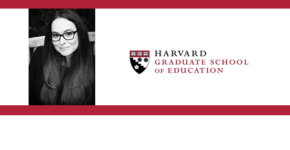 Mentors are key for the post-collegiate transition.
Mentors are key for the post-collegiate transition.
Alexis Redding, lecturer at the Harvard Graduate School of Education, suggests the types of mentors to seek out.
Dr. Alexis Redding is the Faculty Co-Chair of Higher Education & a lecturer at the Harvard Graduate School of Education. She is an expert in the college experience and teaches graduate courses in college student development, student affairs, and ethnography. In addition to her research and teaching, she has mentored students in both the United States and Europe for more than two decades.
From College to Career: A Mentorship Model for Student Success
During the college years, as students begin to explore options for their future, new post college pathways often emerge. After the experience of broadening their horizons, narrowing these options and making decisions about the future can be especially challenging. In fact, having an expanded network of professional opportunities can actually intensify the anxiety some students experience during the decision-making process.
Ensuring that students have the right kinds of mentors in place — not simply a range of people playing this role — can help them make a successful transition to the next chapter.
In research on the college experience across generations, conducted with Dr. Nancy Hill at the Harvard Graduate School of Education, we identified three types of mentoring relationships that can better position students to navigate the career search process. These mentors take three forms: mirrors, windows, and guiding lights.
First, mirrors facilitate the self-reflection that is necessary to help students see themselves and their interests more clearly, allowing them to match those interests to career paths. This role is often filled by the people who know students best.
Second, windows are mentors who show students what is possible. They help them to see the range of options in a given field and to examine the reality of what that work might look like through personal narratives or by providing professional experiences.
Third, guiding lights are mentors within the field who provide authentic first-hand knowledge and authoritative insight into how to both prepare and succeed. These mentors help to illuminate the path and translate emerging goals into an action plan.
This model of mentorship accounts for the evolution of students’ decision-making processes and scaffolds their changing needs over time.
Read More:
[Harvard University Press] – The End of Adolescence
[Twitter] – @Prof_Redding
[Twitter] – @ProfNancyHill
[Twitter] – @HGSE and @Harvard
[Twitter] – @Harvard_Press and @HarvardUPLondon


Comments
3 responses to “Alexis Redding, Harvard University – From College to Career: A Mentorship Model for Student Success”